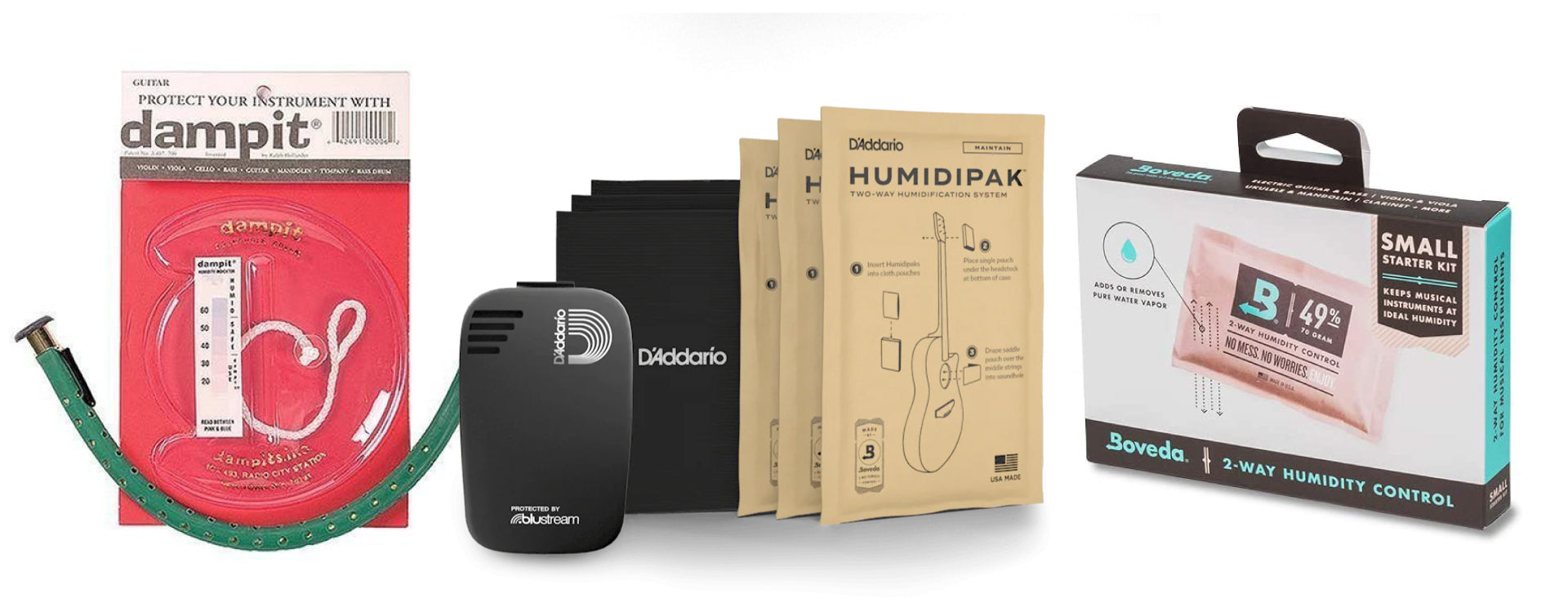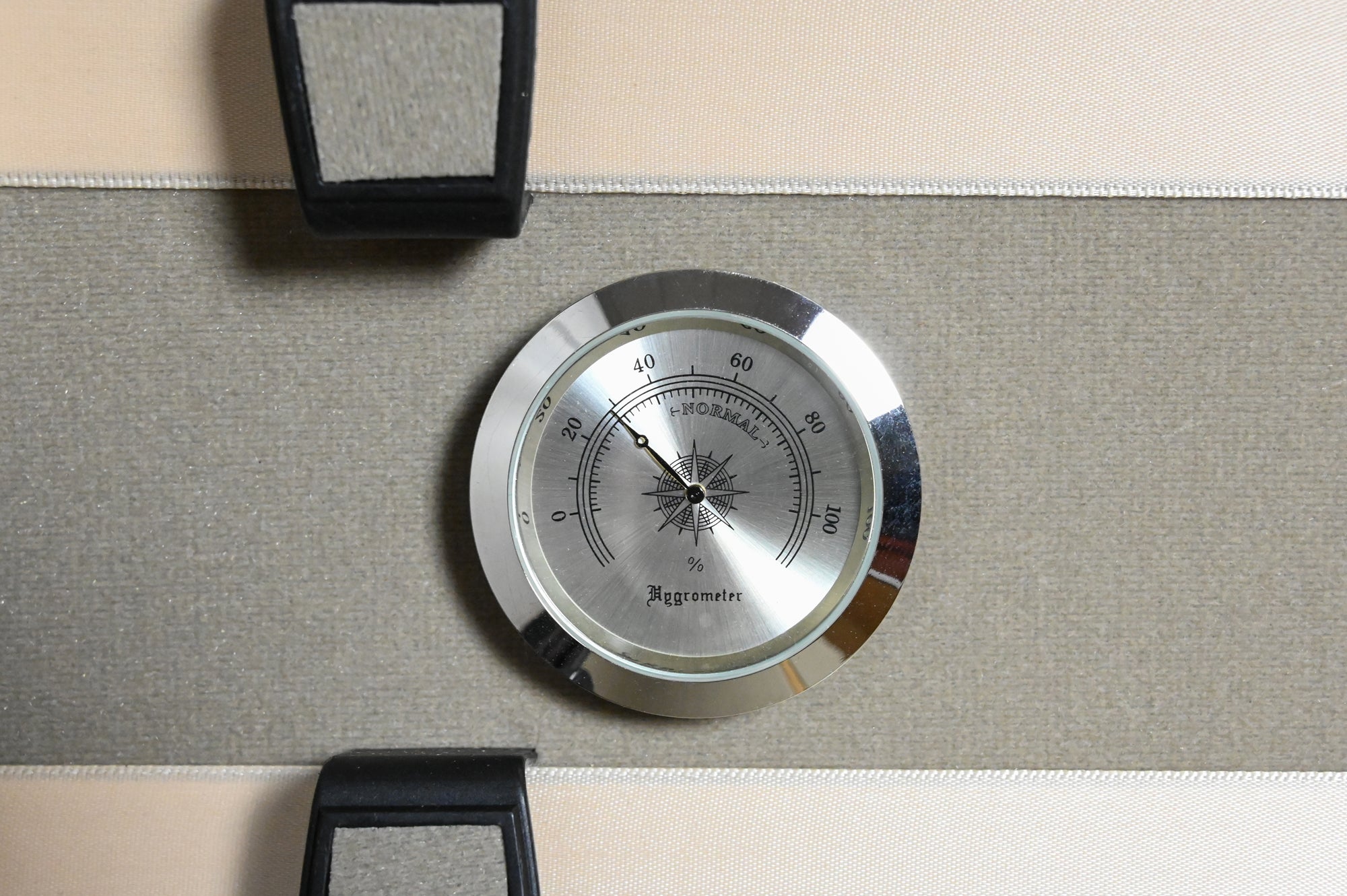Humidity and Your Stringed Instrument

By Joel Kennedy
People often call Kennedy Violins and ask about how to take care of their violin, guitar, or other stringed instrument. My response is usually to tell them that there is not a lot they have to do, other than wiping off the excess rosin after every violin practice session so it doesn't have a chance to build up. However, where a person lives can have a substantial impact on not only the sound quality but the playability of their instrument, and also whether the parts of the body stay glued together or not.
Excessive humidity can cause your instrument to warp and come unglued, but the majority of people have to concern themselves with excessively dry air damaging their stringed instrument more than the opposite. The larger your instrument, the more it is affected by changing humidity conditions, so if you are a cellist or guitarist, you have to pay particular attention to the water content in the air more than the average violist or violinist. However, living in a temperate area will not get you off the hook. If you live in an area that gets cold in the winter time, you should pay attention to the air quality your stringed instrument is subjected to. Often people in colder climates will keep their home furnaces on 24/7 and the result is very dry air. This can be the death of your instrument, especially if it's a cello or bass. When wood does not have enough water in it, it shrinks, and if it contracts enough, it can crack.
At some point in a violin's life, its ribs will start to separate from the top and bottom plates of the instrument because of changing humidity conditions. This is caused by the constant expansion and contraction of the violin parts. Initially, the hairline seams that develop between the ribs and plates are not noticeable to the naked eye, but the sound quality and responsiveness of the violin will be noticeably hindered to the trained ear.
Gluing the plates back to the ribs is a simple repair and isn't terribly expensive. However, if left unchecked, stringed instruments like basses and cellos can develop cracks on their tops and backs and not only are these repairs expensive but often times will render the instrument unrepairable when considering the cost to correct the problem.

Controlling Humidity
The good news is, it is very easy and inexpensive to control the humidity conditions that your stringed instrument is subjected to. A simple device like a Dampit brand humidifier can be placed in the F-hole of your stringed instrument when it is not in use and it will release a small amount of humidity into your violin, viola, cello or bass that will keep it from getting too dry. You have to re-wet them everyday or every other day, depending on humidity conditions and they will last a long time. These devices even come with a handy paper humidity gauge, to give you an idea of what the water content of the air is. However, the easiest thing to do, is to just purchase a violin case with a built in hygrometer gauge.
Other convenient Humidity Solutions include Inserts by D'Addario and Boveda that come in various sizes to provide the proper humidity levels for small to large instruments. These products offer low-cost protection for your valuable instrument.

Case Hygrometer Gauge
Every once in a while, simply have a look at the gauge to check the humidity content in the air. The ideal humidity is around 35%-60%. As long as you keep your instrument in this range, you are probably fine. Rapidly changing humidity conditions can be quite hard on your stringed instrument as well, so using a product like the Dampit can even out the humidity swings when you have to use your instrument in different venues and are unable to control the conditions to which your stringed instrument is subjected.
You can also keep tabs on the conditions of the room where you store your instruments. Digital room hygrometers, like this hygrometer from Emate, can let you know when a room humidifier would be helpful.
Simply paying attention to the air quality around your stringed instrument and using inexpensive devices like humidifier tubes, will ensure that your instrument will sound good, stay in tune, play well and will not need repair for many years!
















